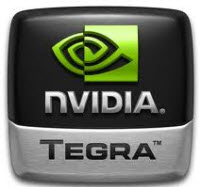Nvidia CEO views wireless chips as future profit driver


Nvidia had a strong fourth quarter, but where does CEO Jen-Hsun Huang envision the future of chip sales to be?
In Nvidia's fourth quarter, the firm posted earnings of $174 million, or 28 cents a share, on revenue of $1.106 billion. This quarter's results are up 16.1 percent year-on-year, but are down 8.1 percent from Q3 2012.
The company also said it is currently sampling production of its Tegra 4 processors with 4G LTE capabilities, which Nvidia executives believe will sell at a growth rate of 50 percent annually, with 150 million units sold by the end of 2013.
The LTE Tegra processors have been developed to better compete with rivals including chip maker Qualcomm. Sales have grown 90 percent year-on-year. However, where do smartphone processors fit in Nvidia's future goals?
In an interview with Tiernan Ray of Barrons, Huang discussed the company's forthcoming "Icera" baseband chip, made possible after purchasing Icera for $367 million in 2011. Baseband chipsets are used to control the networking and radio aspects of a mobile device and process communication functions, which can include Wi-Fi capabilities.
Ray asked the CEO whether he believed the baseband chip would help sell additional Tegra units, especially as for the most expensive smartphone models, phone makers often wish to buy the chip separately from the application processor. Huang said that he believes Icera will "absolutely" make Tegra more profitable, and commented that he thinks "the market is already in the process of changing."
In addition, Nvidia's CEO said:
"There's a segment of the marketplace where connectivity is not needed. But going forward, the largest TAM [total addressable market] is going to be in the LTE-connected device market. The baseband has changed from being a separate part. Nearly all our opportunities have been where LTE is not required. When we are in situations where LTE is required, it's harder for us to compete for that business because competition has had the edge in that."
Q4 2012's weakness in relation to the third quarter was placed at the feet of weakening global PC sales, and as the chip maker's GPU business is very much in tandem with this industry, Huang said that any affect in this area could simply become the catalyst growth in other areas to pick up the slack. When it comes to high performance processors for gaming enthusiasts, there is a sustainable demand for Nvidia products, something which is unlikely to change. The CEO concluded:
"The dynamics are right for us, the rise of massively multiplayer, and free to play are growing, and we have these new growth opportunities."